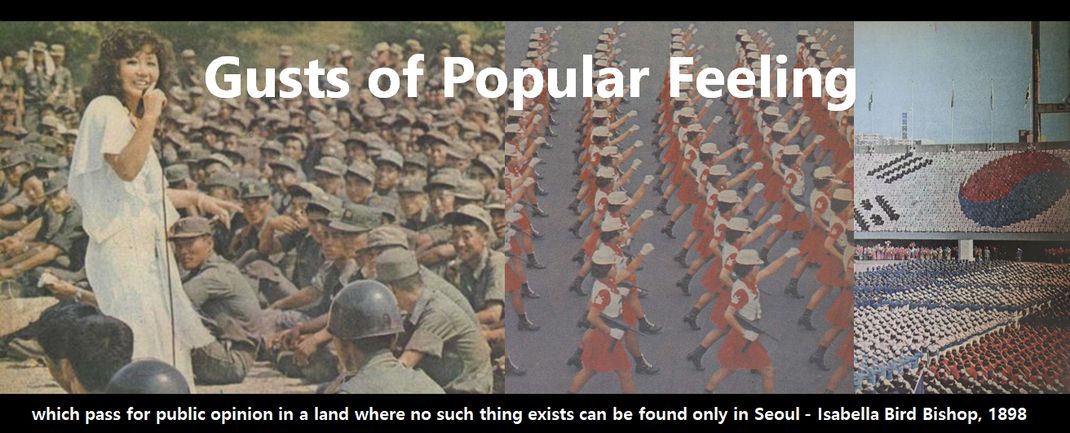Prologue 1: "Why can't Americans be Punished?"
Part 1: The Seoul Olympics, 25 years later
Part 2: The 1988 Olympics and Korean fears of AIDS
Part 3: Americans and bad first impressions
Part 4: Reptilian Style: The 'live-or-die general war' against Hollywood
Part 5: An attack in a boxing ring
Part 6: Media responses to the boxing ring incident
Part 7: No more lion: US swimmers' 'prank' becomes 'diplomatic incident'
Part 8: KAIST catches Big Ben
Part 9: Hankyoreh interviews Korean witness to theft by swimmers
Part 10: Stop me if you've heard this one: Four GIs head to Itaewon in a taxi...
Part 11: Taxi-kicking US runner taken to Itaewon police box
Part 12: NBC uses the power of t-shirts to insult Korea... again
Part 13: Cultivating outrage toward America
Part 14: Politicians engage in damage control
Part 15: Heaven on Earth
Part 16: Hustler magazine tramples the purity of the Korean race
Part 17: Stolen gold
Part 15: Heaven on Earth
In the November 1988 issue of The New York Review of Books, Ian Buruma wrote a lengthy place about the Seoul Olympics titled 'Playing for Keeps' (which also appears in his book 'The Missionary and the Libertine'). In it he mentions one aspect of Korean culture he came across:
Perhaps the Korean belief in miracles is cultural. Korea is after all a nation of mass prayer meetings, new religions, the birthplace of the Reverend Moon, and a hospitable destination for the likes of Billy Graham. Russell Warren Howe, in his otherwise egregiously ill-written, misinformed book [reviewed here], is probably right to call Korean culture shamanistic. Filipinos often seem to be waiting for a national messiah, but Koreans have a tendency to take a messianic view of the nation itself. One of the more amusing spectacles at the Seoul games was the peddlers of many different sects and creeds lying in ambush outside the main entrances of sports arenas. I shall restrict my quotations to only two of the many pamphlets pressed into my hands by beaming proselytizers. One was from one Presbyter Park Tae-sun, of the Sun Kyung (Fairland) Development and Institution:Up next we'll look at the lengths gone to to win one more medal for Korea by claiming victory over an American.
To All Mankind!—We proclaim that the Republic of Korea is the country where mankind was first created and civilization was cradled, and the parental country of all mankind. All mankind now participating in the '88 Olympic Games! We advise you to realize the fact that the Republic of Korea having about 5000 year [sic] long history, is your parental country."The Kingdom Gospel Evangelical Association had this to say:
The reason why the kingdom of God where our human body can live eternally comes true herein [sic] the Republic of Korea is that the Taegukki, Korea National Flag has the figure of glorious God, and the Republic of Korea has seen the Second Advent of Jesus Christ really coming to it. Now, all the world should recognize the fact that the Republic of Korea is the right place where the heaven of eternal life shall be realized.One suspects something wrong happened on the way to modern nationhood in Korea. An unfortunate synthesis must have occurred between West and East. The West, usually via Japan in the 1920s and 1930s, gave Korea half-baked German notions of Blood and Soil; it also exported, mostly from America, the equally half-baked notions of vulgar evangelism. Korea contributed an emotional legacy of historical bitterness and a propensity for shamanistic rites. These are precisely some of the ingredients that went into Independence Hall, and were encouraged by the Olympic games. No doubt the sense of victimhood, of being ignored or worse by other powers throughout history, has contributed to the modern zeal to gain recognition, to win gold medals, to beat the Japanese, and ultimately, who knows, the Americans.

No comments:
Post a Comment